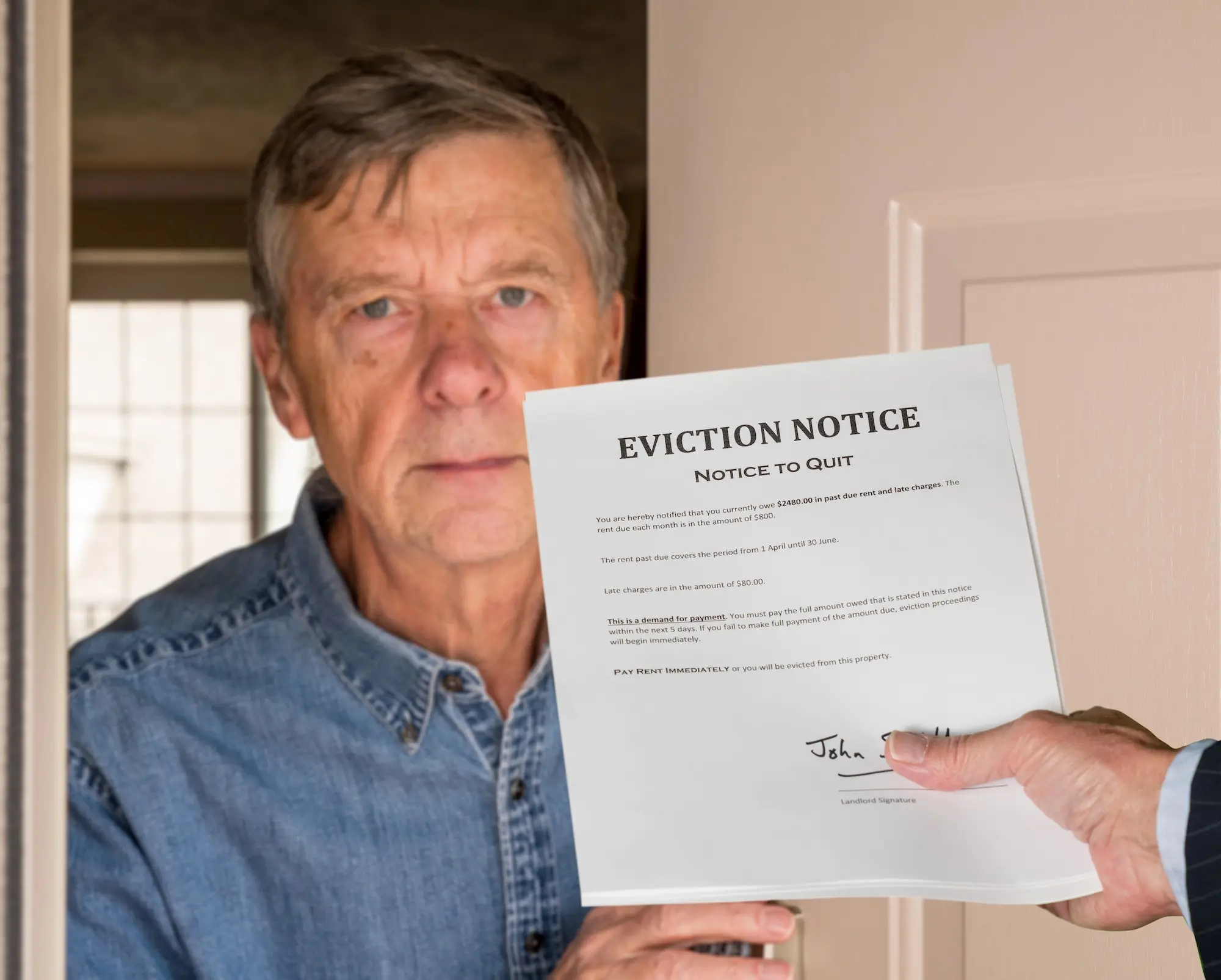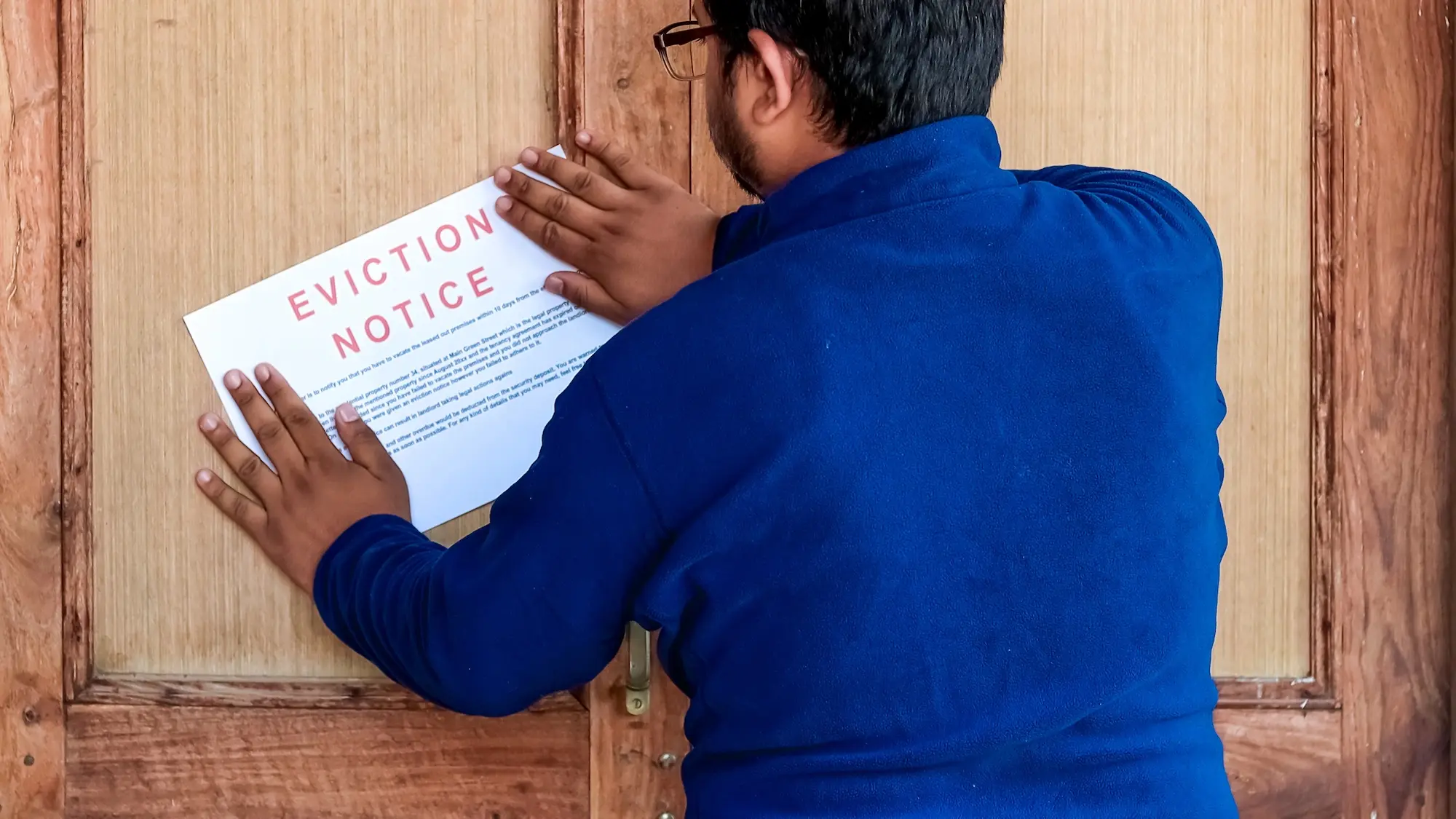Falling behind on rent is scary. You risk late fees, eviction, credit damage, and the stress of finding a new home. With rents rising and wages flat, half of all renters have unaffordable rent payments, and one missed payment can put your home at risk.
An eviction can show up on your credit report and lower your score for years, making future rentals harder to secure. Acting quickly is essential. With the proper steps, you can protect your home, finances, and future.
Key Takeaways
- Learn your tenant rights and the eviction process to understand your options.
- Communicate early and honestly with your landlord.
- Start budgeting, seeking financial aid, and negotiating payment plans.
- Apply quickly for rental assistance - funds can take weeks to arrive.
- Keep records of all payments, notices, and landlord communication.
Assess Your Finances and Prioritize Rent
If you can't pay rent, immediately review your income, savings, and expenses to free up as much cash as possible. Even a partial payment is better than none. Cut nonessentials like streaming or dining out. Tap emergency savings and retirement funds, or sell investments if needed. It's not ideal, but avoiding eviction matters more than preserving long-term savings.
Make Rent Your #1 Bill
Rent is your top priority, followed by essential utilities. If necessary, defer payments on lower-priority bills but notify your creditors. Check with your credit card company and lenders. Many offer hardship programs that let you pause payments and redirect cash toward rent.
Steps to Prioritize Payments
- List all income sources.
- Categorize expenses: essential (rent, utilities, food) vs. nonessential (entertainment).
- Cut or pause nonessential spending.
- Contact creditors about deferring lower-priority bills.
- Calculate how much you can pay toward rent.
Understand Your Rights and the Eviction Process
Research your state and local eviction laws. Your landlord can't evict you without going through the legal process.
- Start with your lease: Check clauses on late payments, grace periods, and missed payment procedures.
- Know the timeline: Most states require a written "Pay or Quit" notice (typically 3-14 days) to pay or move.
- Eviction isn't instant: If you don't pay, the landlord must file in court, which can take weeks or months.
- Some units have extra protection: If your landlord has a federally backed mortgage through Fannie Mae, you may be entitled to a full 30-day notice for nonpayment.
- Many cities require mediation: Search "[Your City/State] tenant rights" or consult resources like the CFPB's Help for renters.
Important: Only a court order can force your removal. Without one, it's illegal for a landlord to change the locks or take your belongings. Know your rights. Document everything.
Talk to Your Landlord Before Rent Is Late
Open communication with your landlord is crucial before you miss a rent payment. Although it can be intimidating to admit financial struggles, many landlords prefer finding solutions rather than pursuing expensive evictions. Most are flexible, especially with reliable tenants, since evictions mean court fees, lost rent, and the hassle of finding new tenants.
Consider these options when communicating with your landlord:
- Request an extension: If you need a short delay, ask for a specific new due date and explain why it's achievable.
- Propose a repayment plan: Offer to pay a portion now and the remainder in installments. For example, "Could I pay half now and the other half with my next paycheck in two weeks?"
- Ask for a late fee waiver: Inquire if they can waive or postpone late fees while you catch up.
- Discuss temporary rent reduction: While less common, some landlords might consider a short-term reduction to avoid vacancy.
- Inquire about using your security deposit: As a last resort, ask if it can cover the current rent, with an agreement to replenish it later.
Always confirm arrangements in writing. After a verbal conversation, send a follow-up email summarizing the terms and request confirmation. This protects both parties. For example: "Confirming our discussion, I'll pay $X now and the balance by [date], with late fees waived." Keep communications respectful and professional.
Pro Tip: If talking feels overwhelming, start with an email outlining your situation, what you can pay, and when. This helps present your case before a phone call or meeting.
Seek Emergency Rental Assistance
If your budget still falls short, explore external help immediately. Many states and cities offer programs for one-time aid or short-term support to keep you housed during financial hardship. Apply immediately because, depending on the program, funds can take 2-6 weeks to arrive.
Where to Look for Help
- State and local housing agencies: Search your city or state website for "rent assistance" programs.
- Rental Assistance Finder: Connects renters with programs distributing federal assistance.
- Dial 2-1-1 or visit 211.org: United Way's referral network for local nonprofits like the Salvation Army and Catholic Charities.
- City or county housing authorities: Some offer emergency housing vouchers or direct rental aid.
Be Prepared With
- Your lease
- Proof of hardship (job loss, medical bills, etc.)
- Landlord contact info (some programs require landlord participation)
The federal Emergency Rental Assistance program helped over 5 million households in 2021.
Pro Tip: If a program requires landlord participation, send them a pre-filled email with links, forms, and deadlines to streamline the process.
Get Help Without Adding Debt
If rent aid isn't enough, find support that won't dig you deeper into debt. Zero or low-interest loans with flexible repayment terms are far better than high-interest loans like payday advances.
Quick Financial Strategies
- Ask family or friends for a loan: Keep it respectful and document repayment terms in writing.
- Sell unused items: Electronics, furniture, tools, and tech can bring fast cash.
- Take on short-term gig work: Rideshare, delivery apps, or freelance jobs often pay quickly.
- Apply for unemployment benefits : If you've lost your job, file immediately to help cover rent.
- Avoid high-interest debt: Payday loans and cash advances often make things worse, not better.
Contact a Housing Counselor or Legal Aid
HUD-approved housing counselors offer free guidance to help you understand your options, negotiate with your landlord, apply for aid, and build a sustainable budget. They're familiar with local housing laws and can often surface resources you didn't know existed.
If you've received an eviction notice or court filing, seek legal assistance immediately. A lawyer may be able to delay or stop the eviction, especially if your landlord skipped legal steps or hasn't kept the unit habitable.
Who to Contact for Help
- HUD-approved housing counseling agencies
- Local Legal Aid societies
- Tenant advocacy groups or renter unions
- State or local bar associations (many offer pro bono referrals)
Pro Tip: Some courts offer eviction diversion or mediation programs before a judgment is issued. Ask the court clerk if you're eligible.
Keep Records That Protect You
Maintaining copies of all communications with your landlord (emails, letters, call notes), payment receipts, and agreements is crucial. If you apply for assistance, save your applications and correspondence. These records can protect you during negotiations, aid applications, or in court.
Documents to Keep
- All written communication with your landlord
- Proof of rent payments or attempts to pay
- Copies of any notices (e.g., Pay or Quit)
- Records of applications for financial aid
- Photos or evidence of property conditions, if relevant
Plan Beyond the Crisis
As you address your immediate concerns, consider your long-term housing stability. If your current rent is unaffordable, explore sustainable options like a cheaper apartment, a roommate, or long-term housing assistance to prevent future issues.
Conclusion
A rent shortfall can be stressful, but you have more options than you think. You can find a resolution by acting quickly, assessing your finances, knowing your rights, and communicating openly with your landlord. Stay focused and proactive. This situation is temporary, and the steps you take now can protect your home and your future.









